The temple storming still affecting Sikhs today
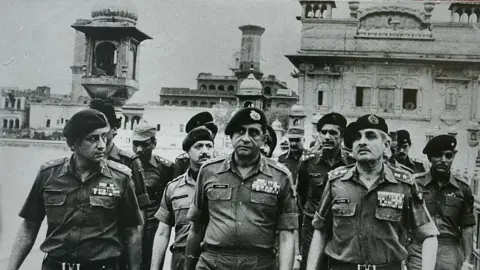 Getty Images
Getty ImagesMembers of the Sikh community have been recalling what their families endured during one of the most brutal periods in the history of their faith.
It is 40 years since Indian armed forces stormed the Golden Temple in Amritsar in Punjab, to remove Sikh separatists who were demanding an independent homeland, called Khalistan.
About 400 people, including 87 soldiers, were killed during Operation Blue Star, which was ordered by then prime minister, Indira Gandhi. But Sikh groups dispute this figure, claiming thousands died.
Sikhs across the world accused troops of desecrating the faith's holiest shrine, and tensions led to an armed insurgency lasting more than a decade.
Here, Sikhs in Bedfordshire recount how the events of June 1984 have left lasting scars.
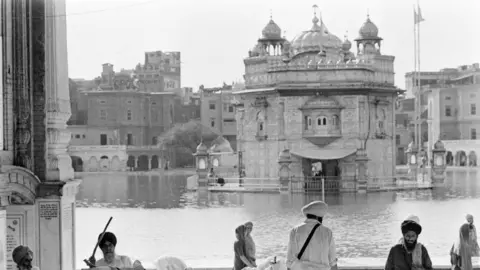 Getty Images
Getty ImagesRasal Singh is a volunteer in the Sikh temple in Luton, and runs a business in Bedfordshire.
His father, Nirmal Singh Chola Sahib, was killed in November 1990.
He said: "My father was arrested and taken to the local police station where he was tortured severely... It was tragic, he was brutally tortured."
The father of three said his family "still suffer today".
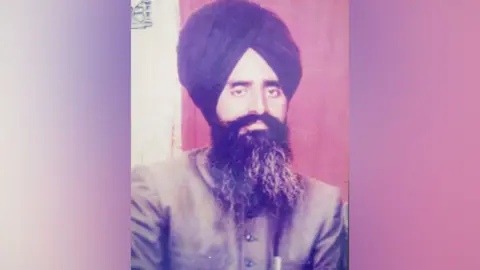 Rasal Singh
Rasal Singh"The pain is still so raw, the absence of my father has left a void that never truly heals he was tortured and killed, it’s left a huge hole in my heart," he said.
"After my dad was killed, my family became homeless, moving from place to place. Even after 40 years, my family is still hurting, and no justice has been served.
"I channel my pain into being a better parent, hoping to give them the sense of completeness that I missed.
"Every hug, every word of encouragement, every moment spent with them is a step towards healing."
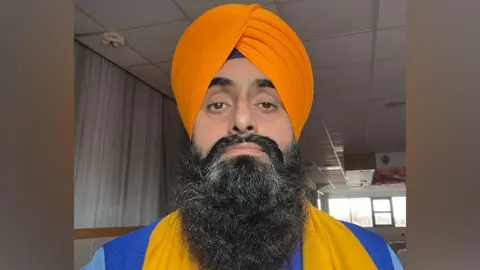 Rasal Singh
Rasal SinghGurjit Singh, from Luton, said his uncle, Paramjit Singh, was a police officer in Punjab before he was killed in the 1990s.
He said: "Innocent people were often tortured and targeted simply for wearing turbans or having beards.
"The police frequently harassed women under false pretences."
He said his uncle became a target for harassment himself while trying to protect a group of women from his colleagues.
"They even targeted his family, including my father, who was also a police officer," he said.
"My uncle had to flee the village, but eventually, they found him, tortured him in jail for 10 days, and then killed him in the fields, staging his death as an escape attempt."
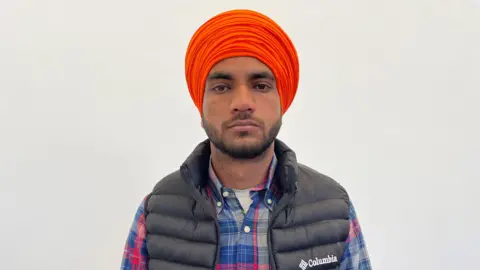 Minreet Kaur/BBC
Minreet Kaur/BBCHe said that his uncle fled, the whole family was arrested, including children and grandparents.
One family member was nine months' pregnant and was denied medical care, suffering a stillbirth.
“Today after 40 years of fighting for justice, we still don’t have it," Mr Singh said.
"Even political parties did not intervene.
"Punjab was in a state of lawlessness and danger. Our family has been shattered, and three generations have been unable to live a normal life."
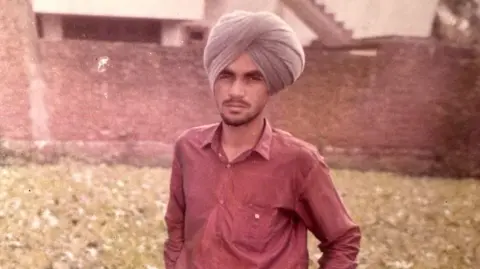 Gurjit Singh
Gurjit SinghHarjinder Singh, from Bedford is a Sikh Activist for Sovereign Roots.
The campaign group provides education toolkits on the Sikh religion and political history of Punjab from the times of Maharaja Ranjit Singh.
He said: "As we mark 40 years since the tragic attack on Sri Darbar Sahib in Amritsar, we remember the thousands of lives lost, including men, women, and children.
"An entire generation has been killed, leaving families and the global Sikh community in enduring pain.
"Today, we find ourselves with no refuge or voice to hear our pleas for justice. The memories of our lost loved ones demand that we seek an independent country, free from the oppression we have faced in India."
Follow Beds, Herts and Bucks news on Facebook, Instagram and X. Got a story? Email [email protected] or WhatsApp us on 0800 169 1830
